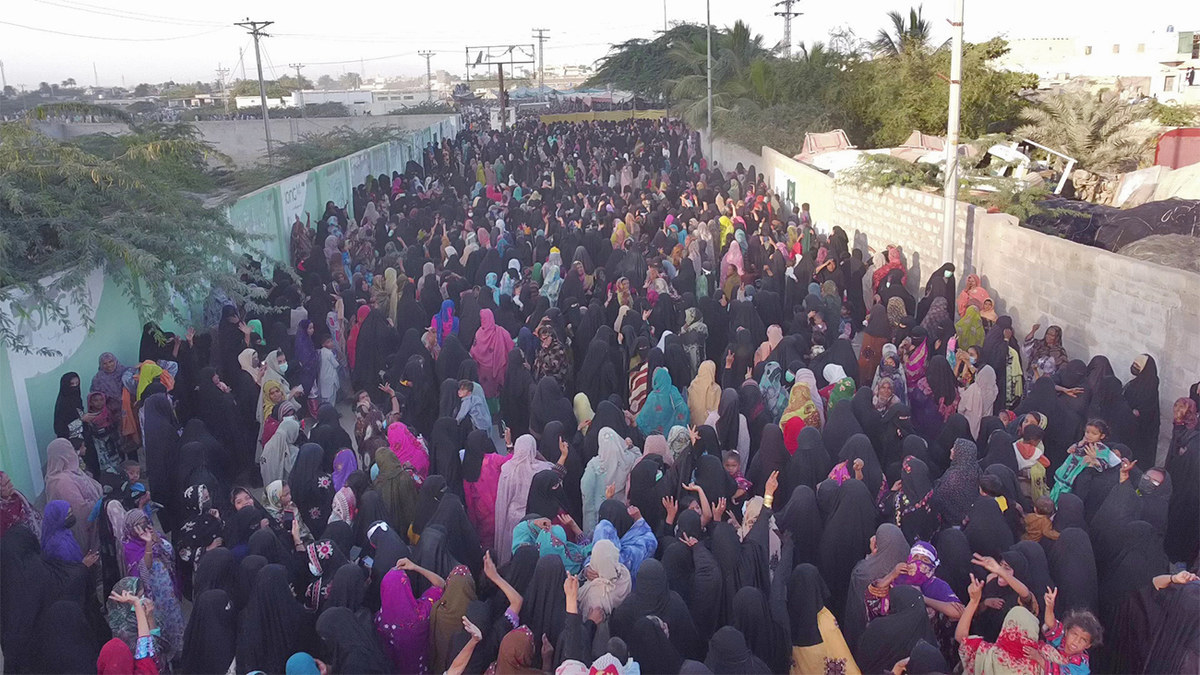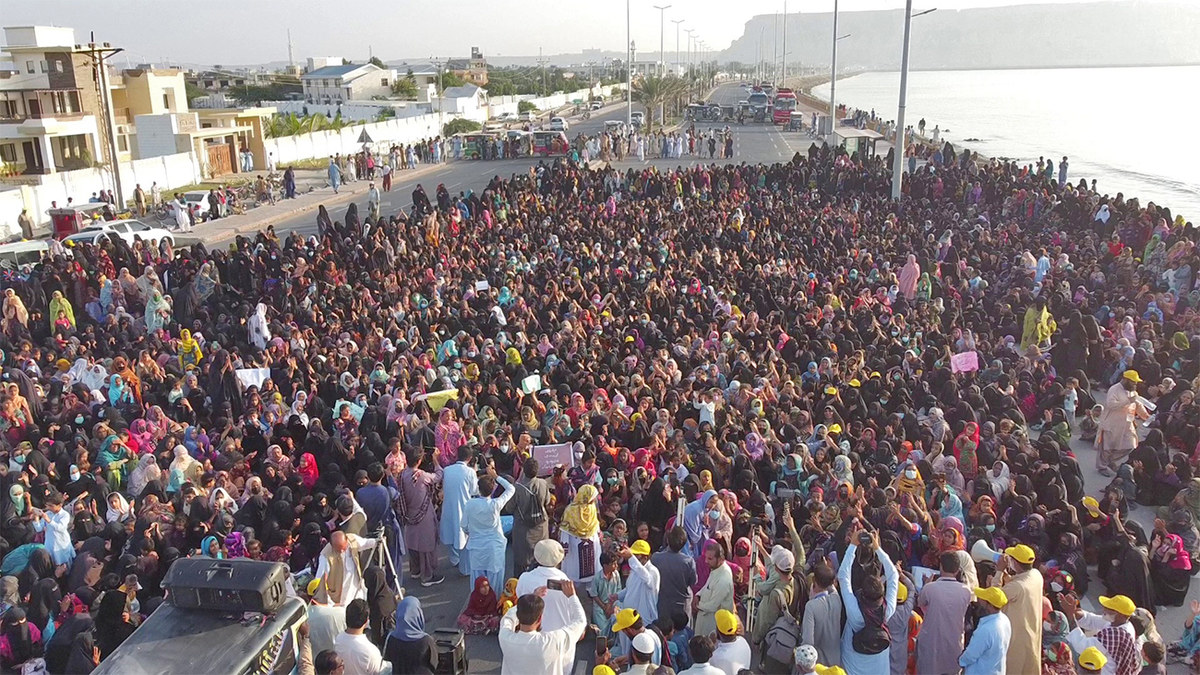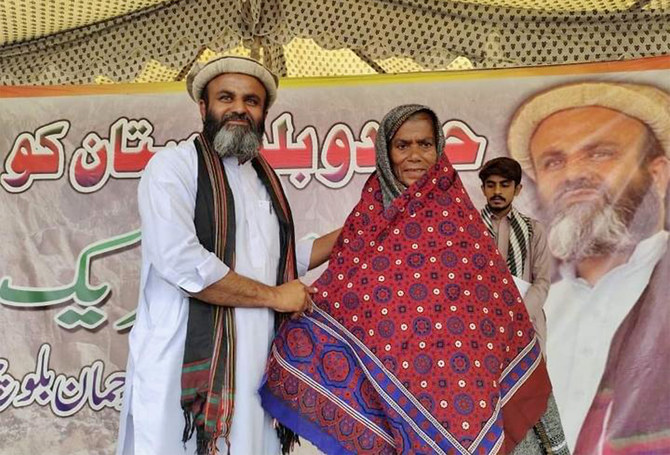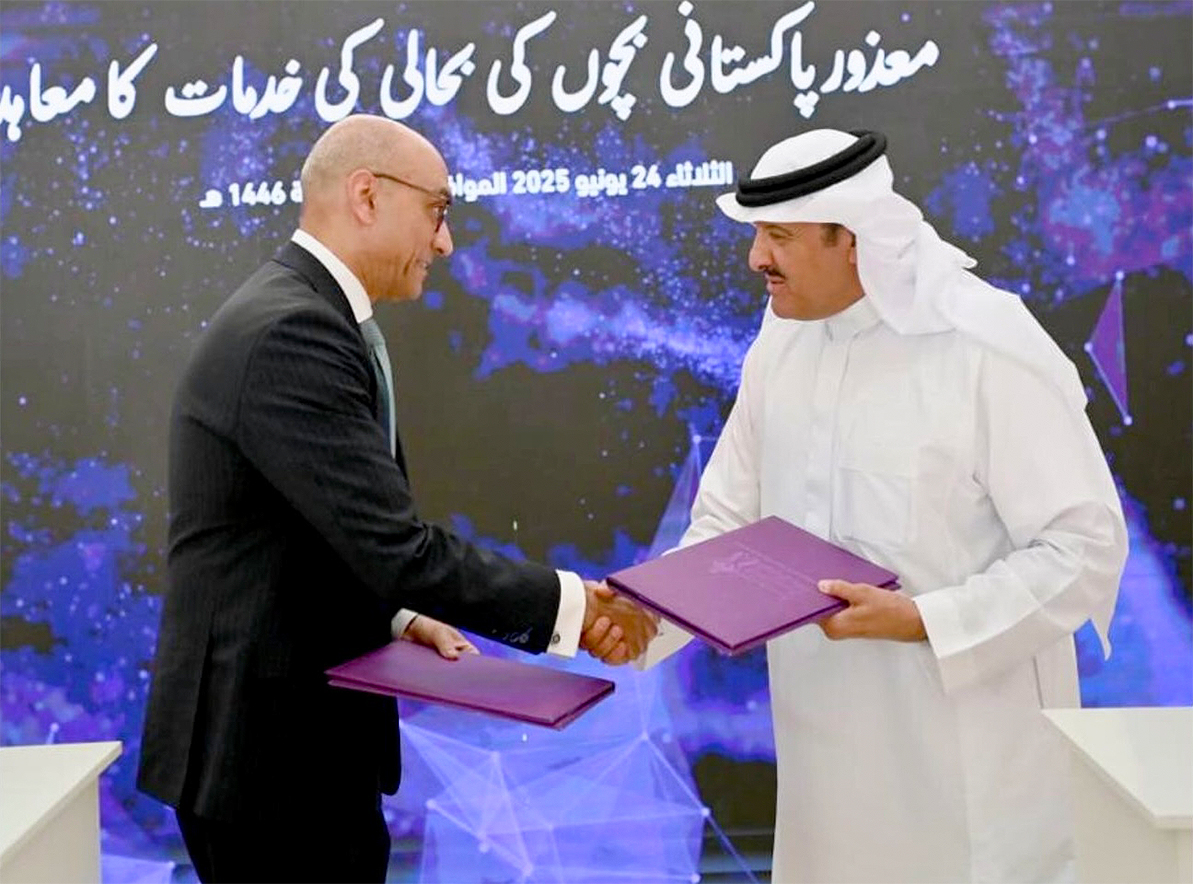GWADAR: While Maulana Hidayat-ur-Rehman, a cleric from Gwadar, became the face of a month-long protest movement in the port city, it was a local woman poet who inspired thousands with her melodious verses and was the first to come out in protest against projects in the area that locals believe have robbed them of their livelihoods.
Gwadar is home to China’s flagship Belt and Road Initiative port project in Pakistan’s impoverished southwestern province of Balochistan, a sparsely populated, mountainous, desert region bordering Afghanistan and Iran. Despite its strategic significance, the locals of Balochistan — and Gwadar — have long complained Chinese presence and investment in the area has done little to improve their lives.
In mid-November, Gwadar erupted in protests against illegal trawling, a growing drugs trade and the lack of basic facilities like health and education. The movement continued under the banner of “Give Gwadar its Rights,” with daily sit-ins and demonstrations taking place for nearly a month — until this Thursday when protesters called off the movement after assurances from the provincial government that their demands would be met.
Women, locals and analysts say, have been instrumental in the success of the movement.
Earlier this week, it was the 70-year-old poetess Zainab Baloch, affectionately called Massi or Amma Zaini in the port city, who acted as a human shield to protect Hidayat-ur-Rehman when police tried to arrest him while he was leading a demonstration.
“Amma Zaini has always motivated women through her poems,” Sameera Siddique, a teacher and local leader of the Jamaat-e-Islami party to which Hidayat-ur-Rehman belongs, told Arab News, saying the poet was a widow with two married daughters and an unemployed son who lived with her. “She has a following among both the elderly and young women of the area.”

Hundreds of women participate in a protest in Gwadar, Pakistan, on December 10, 2021. (AN Photo/Naveed Muhammad)
According to Siddique and other local intellectuals, Baloch was the first to object to the construction of an expressway to connect the port to a major coastal highway, for which authorities “dug up a trench, which made the sea inaccessible to local fishermen.”
“Amma Zaini started protesting and recorded a message for the Maulana who was traveling to Quetta. This is how the protest actually kicked off,” Siddique said, “on a woman’s call who does not have any political affiliations.”
Locals and experts say life has become more difficult for Gwadar residents as the emergence of Chinese infrastructure development projects increased the presence of security forces in the area and of the number of check posts, which have restricted the movement of locals.
Residents say the Chinese project also robbed them of their primary source of livelihood, fishing, as giant fishing trawlers have come in through the Arabian Sea, resulting in the closure of a majority of fish processing factories. China has said it is willing to work with the Pakistan government to ensure the benefits of CPEC projects trickle down to locals.
Speaking to Arab News, poetess Baloch said it was due to these factors that people came out of their homes and a protest movement was launched.
“Give us our sea, give us our livelihood,” she said. “We don’t need anything else.”

In this ariel view of Gwadar, Pakistan, women can be seen marching on Marine Drive Road, a major thoroughfare in the city, on November 30, 2021. (AN Photo/Naveed Muhammad)
Asked about her role in the movement, she said her strength were other women of the city and region.
“When the police started closing in on protesters at one point, I summoned the women who have always accompanied me,” she said. “Most of them have always been at the forefront of protests to secure people’s rights and have stood shoulder to shoulder with men.”
For example, thousands of women stepped out of the comfort of their homes on December 10 and came to the site of a sit-in to prevent authorities from removing the camp and arrest protesting men who had been occupying a major thoroughfare that runs parallel to the seashore.
“It was the fear of hunger that brought women out in such large numbers,” Siddique told Arab News. “They could see that their men were rendered workless by the authorities.”
Local analyst Nasir Rahim Sohrabi said women served as a key part of the protests because women in the coastal districts, especially Gwadar, were more educated and aware than in other areas of Balochistan province.
“The protesting women belong to different backgrounds, but a large number of them were teachers and students,” he said. “Even the women who have not gone to school in Gwadar are equally well informed.”
Young women of Gwadar were also a vital part of the movement, skillfully using social media to amplify the protesters’ demands.

Women gather in protest in Gwadar, Pakistan, on November 30, 2021. (AN photo/Naveed Muhammad)
“It was not the first time that I highlighted the issues of my province, especially my city Gwadar, on social media platforms,” Zainab Aslam, a young teacher at a private school, told Arab News. “My sisters and I tried to create awareness about our movement and enlist the support of other women and young people.”
“The role of women in keeping our movement alive,” she added, “was like oxygen.”

















